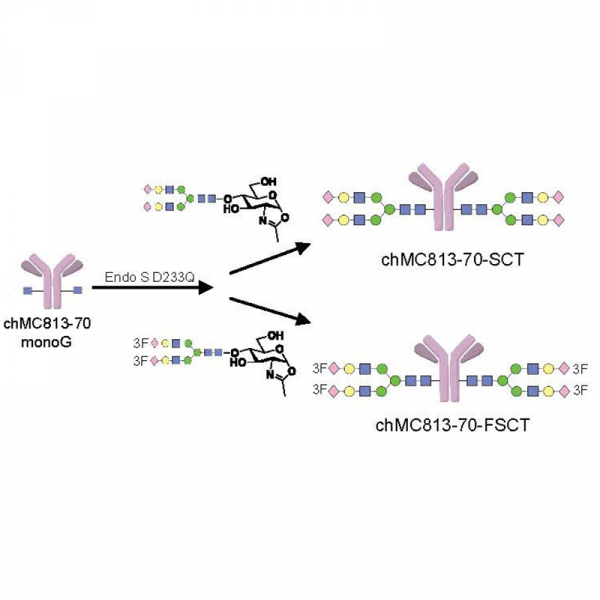
翁啟惠
PNAS
December 14, 2021
Pancreatic cancer is usually asymptomatic in the early stages; the 5-y survival rate is around 9%; and there is a lack of effective treatment. Here we show that SSEA-4 is more expressed in all pancreatic cancer cell lines examined but not detectable in normal pancreatic cells; and high expression of SSEA-4 or the key enzymes B3GALT5 + ST3GAL2 associated with SSEA-4 biosynthesis significantly lowers the overall survival rate. To evaluate potential new treatments for pancreatic cancer, homogeneous antibodies with a well-defined Fc glycan for optimal effector functions and CAR-T cells with scFv construct designed to target SSEA-4 were shown highly effective against pancreatic cancer in vitro and in vivo. This was further supported by the finding that a subpopulation of natural killer (NK) cells isolated by the homogeneous antibody exhibited enhancement in cancer-cell killing activity compared to the unseparated NK cells. These results indicate that targeting SSEA-4 by homologous antibodies or CAR-T strategies can effectively inhibit cancer growth, suggesting SSEA-4 as a potential immunotherapy target for treating pancreatic disease.

